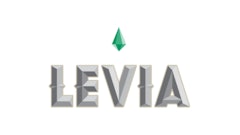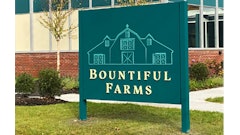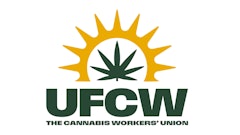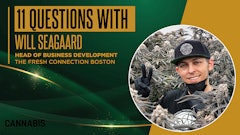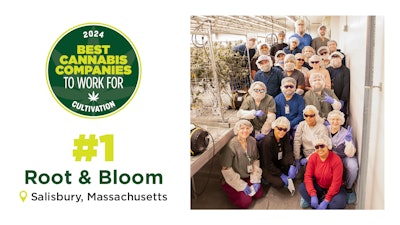
Toward the end of 2023, leaders were concerned about the demands on staff at Root & Bloom, a cannabis cultivation company based in Salisbury, Mass., and a relative newcomer in the state’s adult-use market.
Employees were working more hours than usual to keep pace with record yields from the 20,000-square-foot canopy, which includes eight 1,900-square-foot flower rooms, and a weekly harvest schedule. The company, which had just celebrated its first year of sales, had excess products to process and was having trouble filling vacant roles to alleviate the team.
CEO Tom Regan began arriving to work at 6 a.m. and joined alongside the cultivation techs trimming flower, generally spending about six hours manicuring plants before switching over to his leadership duties.
Members of the leadership team and others started to volunteer, too, and soon, the entire administrative staff was bucking, trimming, weighing and packaging, a “spontaneous collaboration,” Regan says, that continued for two months until new people were hired to take pressure off the post-harvest team.
“It changed the narrative,” says Zoe Cohen, vice president of marketing and communications and one of the original team members. “It was one of the best things we did. It broke down barriers. It helped everyone appreciate each other's work, and it built a culture in ways we had not anticipated or planned.”
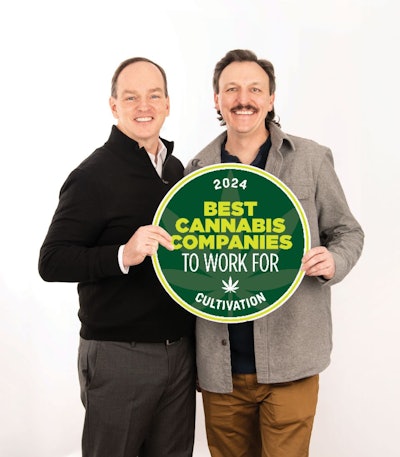
Tom Regan, left, chief executive officer, and William Windham, right, vice president of cultivation, Root & Bloom. Photo by Cynthia August
The turbulent period happened to coincide with when Root & Bloom was in the process of applying for Cannabis Business Times’ Best Cannabis Companies to Work For program. It was a good opportunity to take the pulse of the team, but because of the recent challenges, the company’s leaders did not anticipate the overwhelmingly positive results they received.
“Leadership by example might be our secret sauce here,” Regan says. “When people know you're in it with them and no matter what your title or position in the organization is, you're going to jump in and help them bail out or lift the company up. And the time to do that is at the bad times, not when it's good.”
The company’s performance on the anonymous employee engagement survey landed Root & Bloom in the top spot in this year’s Best Cannabis Company to Work For – Cultivation, rankings. It’s challenging to even qualify for the program – only about 25% who applied and participated in the surveys ranked in 2024 – let alone sail to the No. 1 spot.
“The survey conducted during this period provided us with invaluable insights, even though we were uncertain about the kind of feedback we would receive,” Regan says. “Ultimately, this experience not only helped us address our immediate difficulties but also cultivated a more resilient workplace, demonstrating how challenges can indeed unveil unexpected opportunities and strengthen team unity.”
William Windham, vice president of cultivation, who worked with Regan in the Colorado market before moving to the Northeast, says a philosophy that helps drive the foundation of the culture is that the company is growing people, not plants. Cultivation requires lots of hands-on labor to produce high-quality flower, and providing learning and growth opportunities for the team is essential to success.
As Chief Operating Officer Kyle Teixeira puts it, “It’s the folks that are making the magic happen.”
And because of that, there’s “esprit de corps” among the staff, Regan says, a feeling of pride, membership and loyalty, a shared vision and a common goal.
Here, Regan, Windham Teixeira explain the foundation for their company culture and ethos, and how they create and nurture an engaged workforce.
On the most important/telling interview question:
William Windham: I love to ask people to share something with us that they are proud of or something that makes them proud. The answer to that question is very telling to where they find value in their lives, what motivates them. A lot of folks like to give an answer that is a very “interview” answer. Like, “I'm proud of my work ethic,” and that's great. I hope that they are proud of their work ethic. The types of answers that we really enjoy, that the folks who tend to succeed on our team [say], are things that are accomplishments, often something that they've worked for years toward getting to. Another thing is overcoming hardship. Sometimes people have something tremendous that's happened to them in their life that they've overcome, and they're proud of that. That's important.
Tom Regan: Sometimes we ask someone to talk about a failure, something they did that didn't go well and how they responded to it. It's an interesting question. It gives us an opportunity to find out if they're humble and open to improvement. Because sharing failures is not an easy thing to do. You get to find out how somebody handles adversity. We ask the question more to find out what someone's thought process is.
On onboarding and setting the tone:
Regan: It comes down to a couple things, setting expectations with each other. That builds integrity, trust. Do we hold each other accountable when we mess up, but at the same time give praise? Do we treat each other with dignity? We have to give each other purpose and meaning or we're just a group of people doing stuff for a check. We don't want that.
Kyle Teixeira: One thing that William does really well is once he onboards someone, he schedules time one-on-one with them. So, they get the lay of the building for a day or two. And then he spends about three hours with them and goes through the whole philosophy of what we're trying to do. His fundamental thought is we are developing people who love to grow the plants. It’s the folks that are making the magic happen. This isn’t just plant touching, there’s a lot of cleaning involved. This is a team effort. William also [says] we all have good ideas. I want to hear your ideas. Just because we don't implement them doesn’t mean your ideas are bad. There’s a ratio he uses: one in 1,000 is like a good idea, right? So we want to hear your ideas. We’re going to listen to them, and you’ll get feedback one way or the other.
Windham: I just try to remind them that not everything is going to make it into production, but that if they make one of the thousand, they should feel really good about it. And don't get discouraged with anything; just keep throwing ideas out there and eventually they might change the whole way we approach a system.
On opportunities for professional development:
Teixeira: All our leads and supervisors, myself, Will, are going to a leadership training course at a local community college. The thought is, if we get from leads up [to executives] all in the same room hearing the same things, you know, then we'll have the same reference points and lessons. We’ll speak in the same language.
We’re doing this [for] 10 weeks, four hours a week. We keep them on the clock when they're there to pay them for their time.
Regan: This was totally driven by Kyle. These 18 people that are up-and-comers in the group have stepped into leadership positions, most of them with no cannabis experience, are going through a common shared learning experience, and there's going to be a common language that comes out of that.
So the table stakes to go to the leadership course, you have to take what you learn and share it back with your teams.
I mean we've only been producing revenue for 18 months now. So a lot of the folks we hired had zero cannabis experience. What William and Kyle are doing is they're setting the expectations of what the job is, what's expected of you. But it's done in a way that isn't harsh or overbearing. There’s a compassionate side to it. You're new. You're going to make mistakes. We've got your back on the mentorship thing.
Windham: I have one-on-ones with all of the people in leadership positions on my team, and every week we meet for 30 minutes, and it's whatever they need in that time. And then once a month Kyle holds an “All-Hands,” where we meet with the entire extended team and just talk about the business in general terms. But we spend a lot of time with folks directly, not doing tasks, but trying to help them develop personally and professionally. There are probably five or six people that came in at entry level that have now moved into supervisory positions. I mean that's me, right? When I met Tom [in Colorado while working at MiNDFUL], I was in an entry-level position. Tom's given me many opportunities. That is my favorite part of the job, to give people what was given to me.
Teixeira: They may walk in with an entry-level job and then walk out with a career that they can use for the rest of their lives.
Regan: At one of the last All-Hands meetings, we spoke about death, which was more upbeat than it sounds. My point was you have a decision. You can work anywhere in this industry. You have a choice to work here. It’s important to know that our time is limited, precious and has meaning. And we're all choosing to spend our limited time on this project, and work on this together. It's important for us to acknowledge that and to be appreciative and grateful that everyone chooses to spend their limited time with us.
On promoting a healthy work-life balance:
Windham: We have enough people. Until I worked here, I don't think that I could ever say that I was on a team that was fully staffed. We were constantly just making it work. And because we have enough people, we're able to be flexible. I'll say that I get enough support from [Tom and Kyle] in the way of allowing me to hire enough people because the way that we want to grow is actually fairly labor intensive. We spend a lot of time with our hands on the plants. Being able to allow people to have a healthy work-life balance starts with just having enough of those people.
Teixeira: Every study shows that people are less productive once they hit 45 or 50 hours a week, so it does make sense to staff correctly. I would rather have the team functioning at a high level even if we need to carry one or two extra people to cover holidays and breaks because that pays off on the back end. The work-life balance is important, but you know, Fourth of July, the entire team was here. We cooked hamburgers and hot dogs for lunch. And I have never seen a group of happier people working on Fourth of July. They had just worked for five or six hours so far. They come outside and are all smiles, talking about how much they love how the plants look. I think the work-life balance is important, but it doesn't feel like it's as much of a drag if you actually enjoy what you do, right?
Regan: I think the meetings that our managers have with their people—while this is work and they have a personal life, we don't pry into that—but if somebody shares that they're struggling or having issues, we make sure that they understand that their family has to come first. We can't solve everything, but I think we try to be compassionate when it comes to people's home life. We try to make sure that we give them the resources here, whether it's an employee assistance program that comes with our benefits, or we give them the time off to go do what they do.
Editor’s note: This conversation has been edited for length, style, and clarity.


















